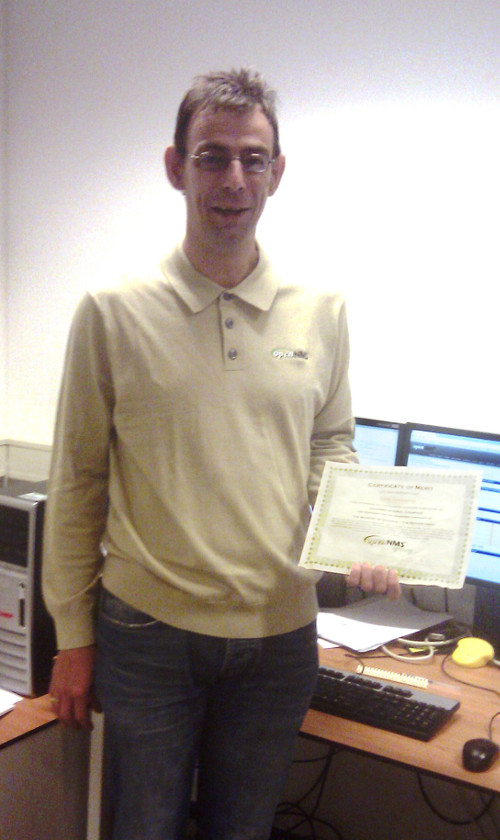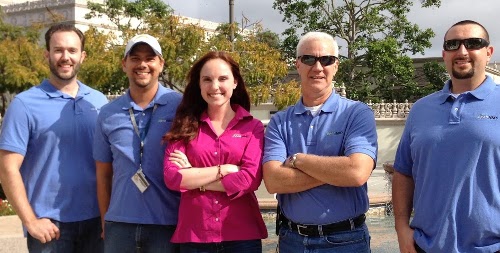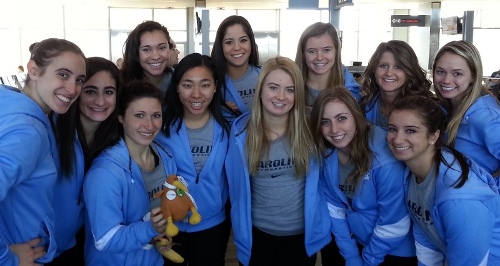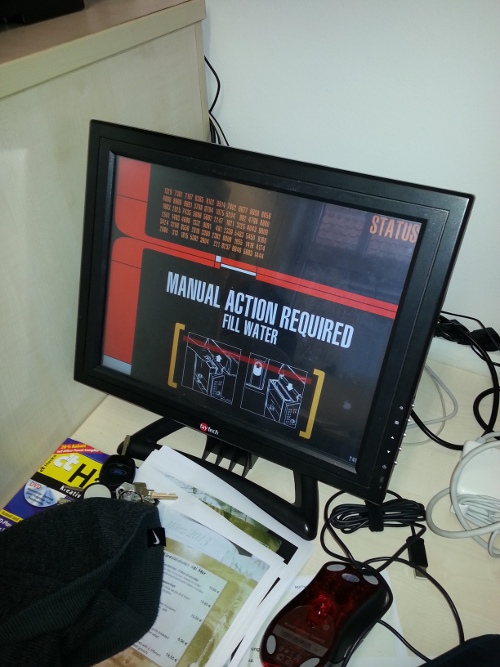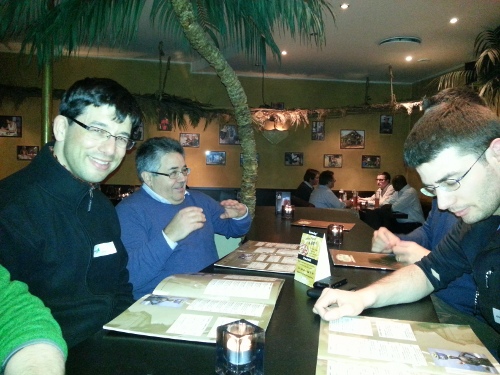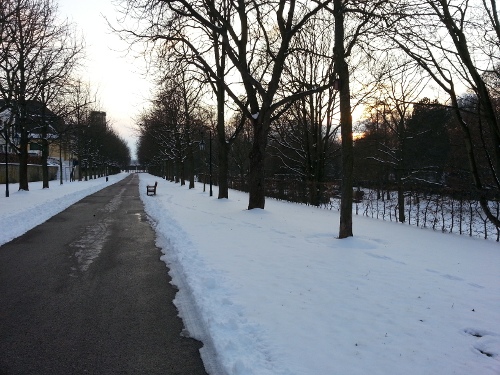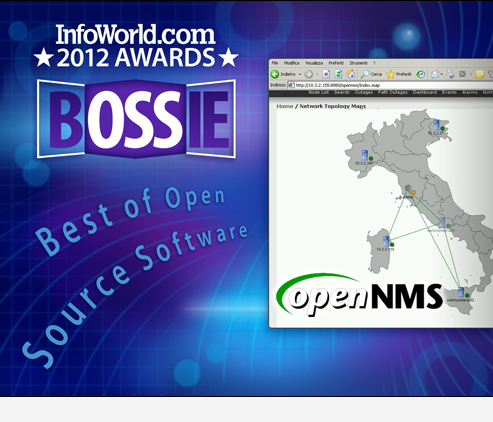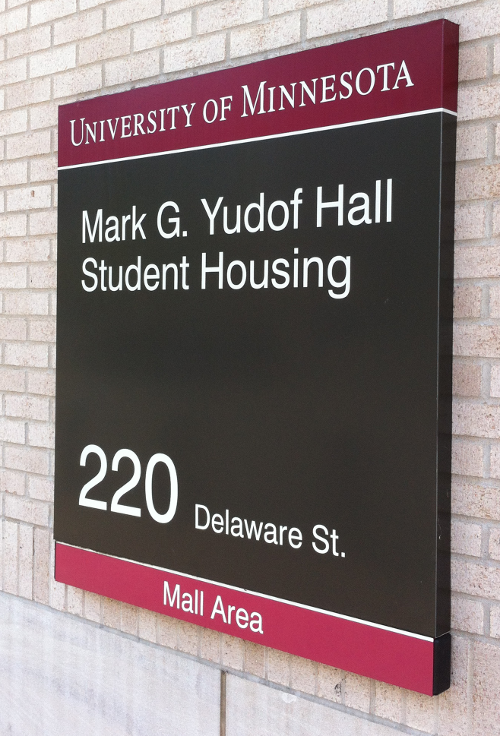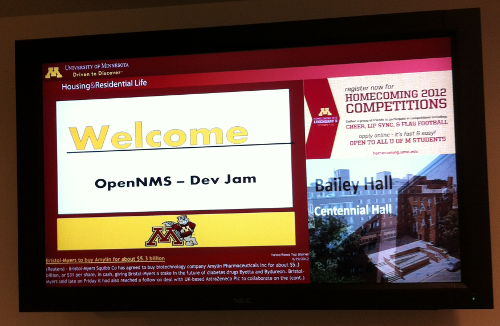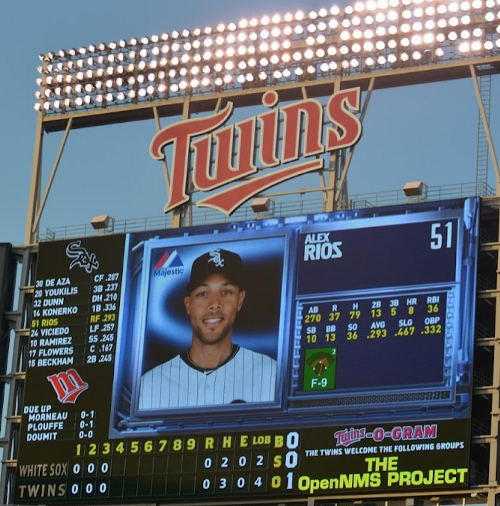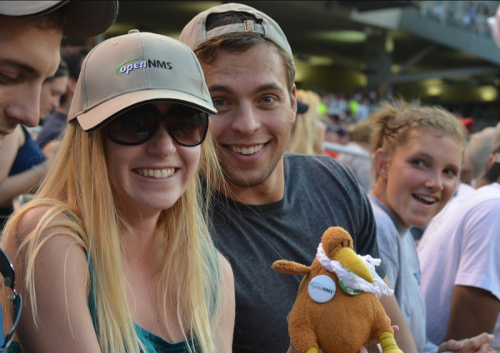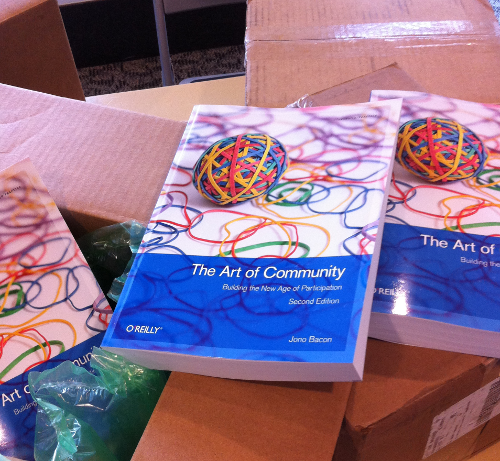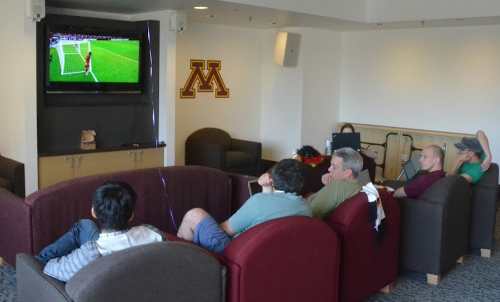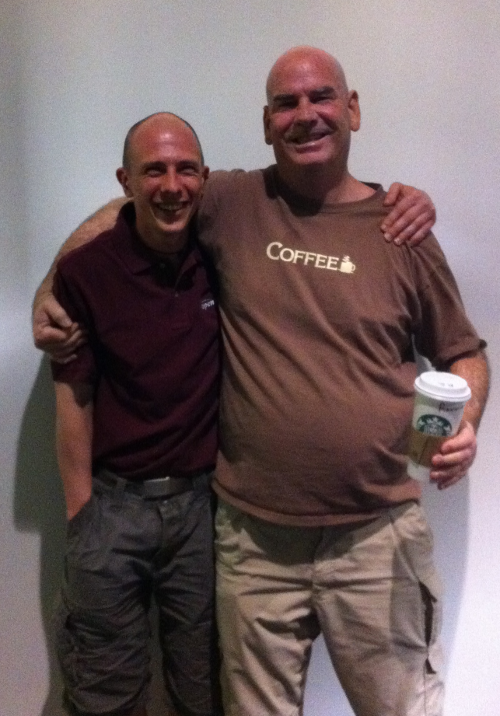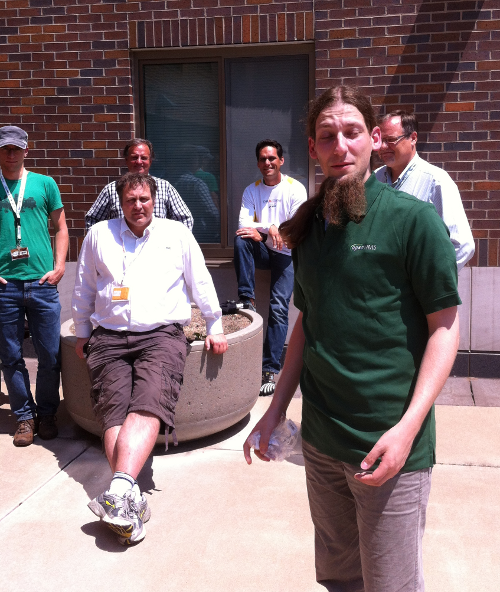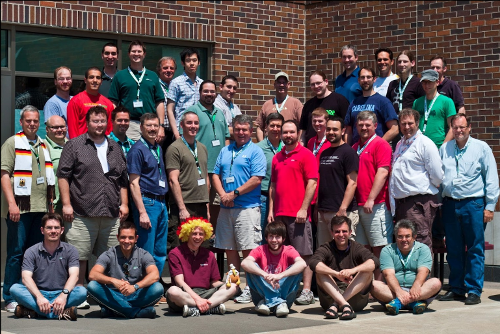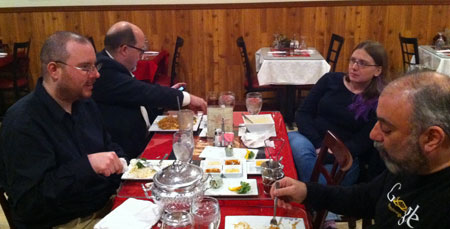Schnapps is Evil.
That isn’t the only thing I learned at the fourth annual OpenNMS Users Conference – Europe (OUCE), but it was the last thing so it stuck in my mind.
But I’m getting ahead of myself.
After spending a great week in Montréal, I was home for around 33 hours before heading back out to the airport. Even though there is a direct flight from RDU to London, I try to avoid Heathrow whenever possible, so I flew two hours in the opposite direction to catch a flight from DFW to Frankfurt. While the flight was uneventful, I didn’t manage to sleep so you can imagine that I looked and felt my best upon arriving at 8am on Monday.
I met up with Jeff, who had flown in from Atlanta, as well as Ronny and Markus, and we headed to the OpenNMS office in Fulda.
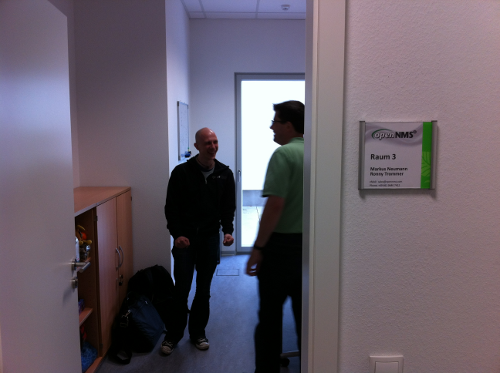
Since it is associated with the University, we then headed to a student run place called Cafe Chaos for coffee and to catch up.
Over time a number of other OpenNMS folks joined us. Christian is working on our VMWare integration, and Dustin is one of our Google Summer of Code folks. Sven brought us a cool little plush toy representing the Planck Epoch, or the universe immediately after the Big Bang.
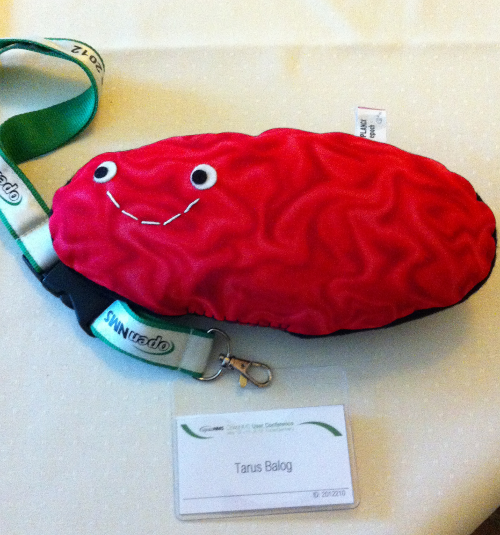
I’m not sure if it was to scale – those things are pretty hard to measure.
I was also introduced to Club-Mate, the official drink of European hackers. It’s an ice tea-like beverage with a high caffeine content and relatively low sugar. I needed caffeine at the time so I drank a half litre, and I can understand the origin of the drink’s tag line which is “You get used to it”.
After lunch we wandered around campus and looked at the facilities. Since Ronny teaches part time at the school, Markus’s impersonation of a young student calling out to him “Herr Trommer” in a high pitched voice became a meme for the week.
Due to a mixup in scheduling, the OUCE was scheduled the same week as a huge emergency service vehicle convention, so all of the hotels in Fulda were booked, thus we got rooms just outside of town at the Hotel Gasthof Rhönblick. It was actually quite nice for the price, and I always like to stay a place where bikers are welcome. That afternoon we checked in and then headed back to Fulda for dinner.
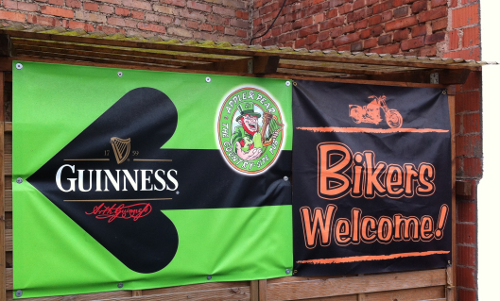
Monday evening we met up with Uwe from Nethinks and his bride Daniela. While the company was awesome at dinner, by this time it was getting close to 11pm and Jeff and I had been up for 34+ hours, so we called it a night.
On Tuesday the OUCE started with the first of two training days. I did a one day seminar on the basics of OpenNMS. While our formal training offerings are a little more structured and go into greater detail, this is a good introduction to the application. Roughly 90 minutes are spent on each major facet of OpenNMS: provisioning, events, service assurance and data collection. We had a little over 30 students in attendance and everyone seemed to enjoy it (I didn’t see anyone sleep or look to terribly lost).
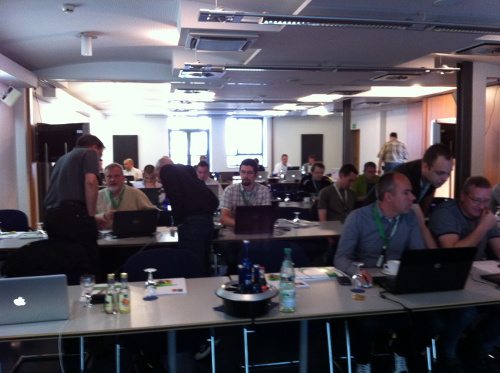
Wednesday was the second, or advanced, training day. This was added after last year’s conference when people wanted to explore the more complex features of OpenNMS. Jeff and Ronny taught this day (to let my voice rest) and it included things like the remote poller, the trouble ticketing interface and JasperReports. We had a few more people show up to for this class since they had been there the year before, and the only complaint I heard was that it was a lot of material to cover. Even when some of the hands-on stuff is removed we are trying to squeeze a five day class into two so it can be a bit much to take in.
On Thursday the OUCE kicked off in earnest. We decided to split the two days into a standard conference agenda on Day One and then a Barcamp on Day Two.
I started the day off with a presentation on the State of OpenNMS, which included a review of the new features in OpenNMS 1.10 as well as the future direction as we build toward 2.0. I also was able to present a mockup of a new user interface based on Vaadin.
This was followed by a great presentation by Alex Finger on project management for large NMS deployments. As someone who has been creating network management solutions for 25 years I can’t stress enough the need for some formal project management structure in order to guarantee the success of such projects.
It was during this talk that I started to structure the agenda for the OpenNMS Users Conference Americas (OUCA) to be held at the end of June. While a lot of people involved with OpenNMS are technical, many tend to have more political than technical challenges to overcome, so I thought it would be cool to have a track focused on the politics of getting a solution like OpenNMS into an organization instead of just how to use it. Alex is going to give this presentation again in Minneapolis as part of that track.
The next four talks were focused on integration. Jeff and Ronny talked about integrating OpenNMS with Puppet. Markus did a very technical talk on instrumenting Java applications with JMX so that OpenNMS could be used to monitor metrics from inside the applications themselves. Michael Batz from Nethinks demonstrated how he was able to use NagViz, a tool designed to integrate with Nagios, to present data from OpenNMS in a graphical format (i.e. maps), and I closed the day with a “Stupid Data Collector Tricks” presentation that included, among other things, a detailed description of my OpenVND project where we used OpenNMS to monitor a drink machine.
After seeing how well these talks were received, I invited the presenters to repeat them for the OUCA. It kinda solidified the theme of “Integration” for the conference. Although, perhaps we’d have more people show up if we unpacked our suitcase of “happy cloud”.
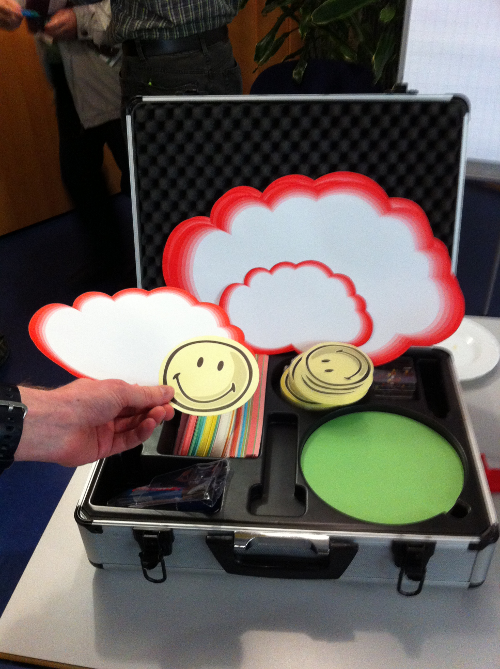
At the end of my presentation we got together to plan Friday’s barcamp. Everyone got up and introduced themselves, and we took down suggestions for topics and placed them on the wall. People would then vote on the talks they most wanted to see, and the top talks would be presented.

We had a little time for a break before everyone headed to the local brewery for an evening event, and no, this is not where the Schnapps comes in. I really like the Wiesenmühle – the beer is excellent and the food is good – although I was unhappy that this wasn’t the right time of year for Dunkel.
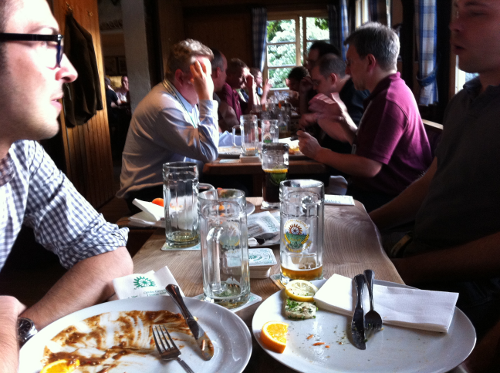
After eating, I excused myself for a couple of hours so that I could head to the office and catch up on e-mails and phone calls. Two hours later when I went back there were some hardcore OpenNMS folks still at it, but our designator driver was able to drive everyone back to the hotel.
Friday we split the day up into two tracks. The first session found me discussing some useful Net-SNMP tricks while Ronny discussed some ideas for using OpenNMS to monitor IPMI interfaces.
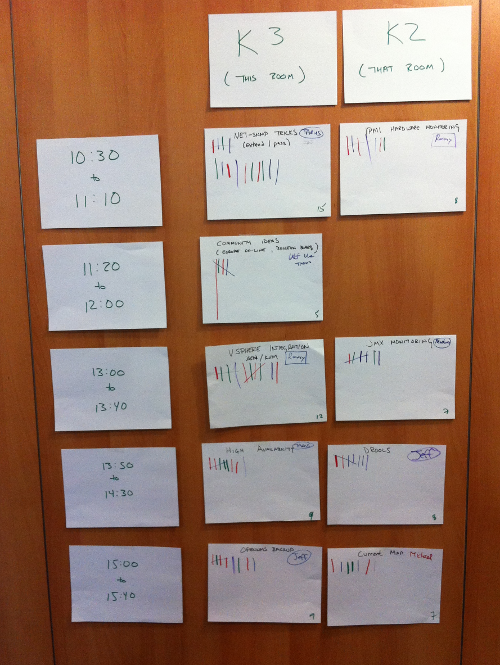
The second session was combined to discuss developing the European user community. While it didn’t get a ton of votes, I felt it was important enough to warrant the slot, and considering that we went 30 minutes over the time budget, we had a lot of good discussion. I really, really want to see the development of an independent users group for conferences such as this. I have no problem with The OpenNMS Group acting as a sponsor, but this should be something for the users by the users and I am certain that our partner Nethinks, who carries the majority burden of organizing this thing every year, could use some help. This session resulted in the creation of a new opennms-europe mailing list and I’m hoping to see the discussion continue there for next year’s conference.
After lunch we had three more sessions. In the first one, Ronny talked about Christian’s VSphere integration for monitoring VMWare while Markus talked some more about JMX integration (it was a popular topic). After that I did a presentation on making OpenNMS highly available, while Jeff did a session on Drools integration. His talk went almost an hour over time (well into the afternoon break) so we shifted the last session out even more. In that one, Jeff talked about backup strategies and Michael revisited maps.
During the afternoon we said goodbye to a number of people who had trains to catch, and the overall atmosphere for the conference was very upbeat. People seem to like OpenNMS and are eager to get most out of it, which does require an investment in time and energy even if the software is free.
There was still a core group of us left after everyone else had gone, and by this time I was totally shattered. After being on the road for most of six weeks, and the last two being out of the country, I just needed to unwind.
This is where the Schnapps comes in.
We dropped our bags off at the office at went to a Cuban-themed bar for drinks. Things started off pretty simply, but I am certain I was the one who called for the first round of Schnapps. We relaxed and talked for a long while, and then the subject of dinner came up. Places were still busy, it being a Friday night as well as the other convention being in town, so we decided to head back to the Wiesenmühle for dinner.
And more beer. And more Schnapps.
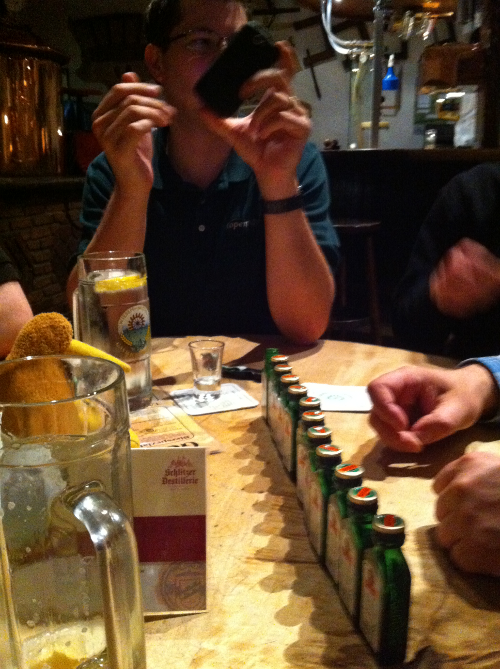
I forget how much we drank that night. I remember Ronny teasing me around 10pm since that was when I wanted to be in bed, but although my memory is a bit hazy I’m certain that was a couple of hours before we actually stopped for the night. Both Ronny and Markus abstained so they could drive the rest of us back to the hotel.
I don’t really remember that ride.
I do remember getting to the hotel, saying goodbye to Ronny and then remembering, too late, that my laptop bag holding my room key was still in his car. Needing sleep, I found that the doorway to my room was comfortable enough. I then I remember sometime later being wakened by Alex who had managed to get the master key from the innkeeper to let me in my room (these locks used old school physical keys and not key cards).
The next thing I know it was 5am. I’m awake, on my bed, completely clothed, and all the lights are on in the room (I haven’t done that in decades). I set my alarm for 7am, turned off the lights and got undressed for a two hour nap before heading to the airport.
Ronny showed up Saturday morning to drive me, Alex and Ian (another attendee) to the airport. I never saw Jeff. My trip home had me going through Heathrow as I wanted to visit some friends in the UK, and I am happy to report that I managed to stay awake as Martin drove me from the airport to his home in Lyndhurst.
There, his wife Sue plied me with the restorative powers of proper English tea, and after what seemed like about two pots I was pretty much myself. On a walk around Lyndhurst I found the next company car, if I can get it with left hand drive.
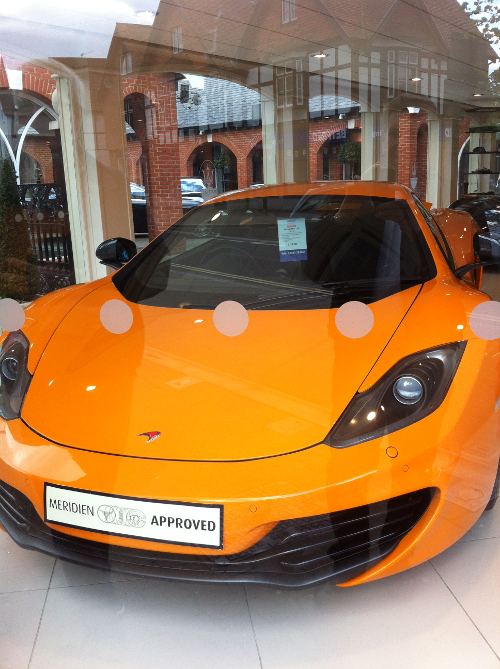
Craig visited from Southampton and we had a nice dinner, and I managed my first real good night’s sleep in weeks.
On Sunday, Sue drove me back to the airport in her new Fiat 500 (what a fun little car) and I had an uneventful trip back to Raleigh (where I was happy to find two Global Entry kiosks at customs).
It was a great week, and I hope to capture some of that energy for the conference next month. We have a number of folks signed up already, and remember that the early bird special ends this week. Space is limited due to the capacity of the rooms we’ve rented from the University, so if you are thinking about coming, register soon or drop me a note so I can save you a space.
And remember, Schnapps is Evil.
